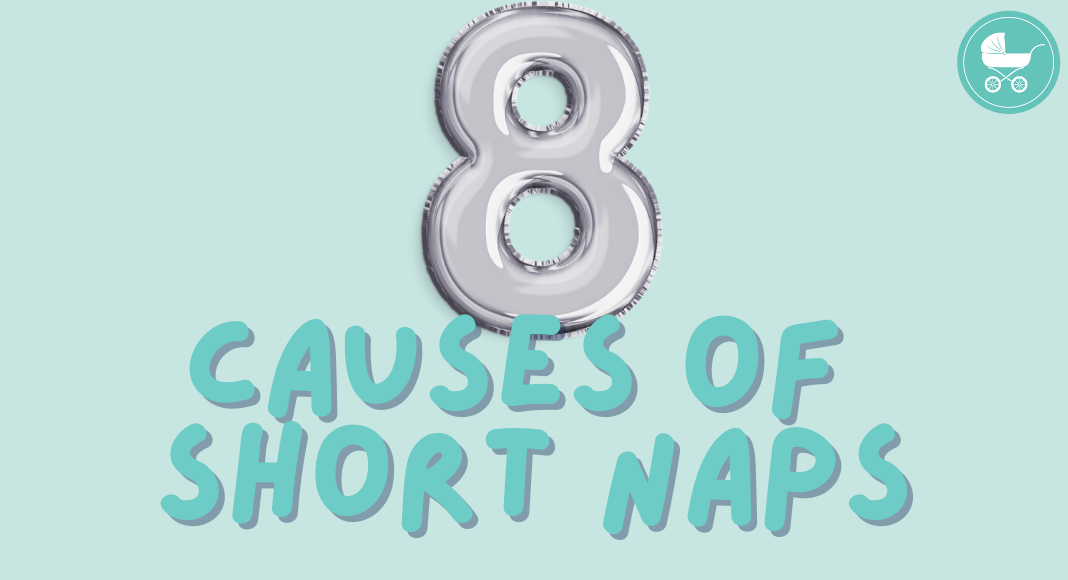
October 27, 2023
If you’re a breastfeeding mom, you’ve definitely heard others say that breastfeeding babies can’t sleep as long of stretches as formula-fed babies or that in general breastfed babies cannot be sleep-trained. Luckily for you breastfeeding moms, this is absolutely not true so let’s break that down. Breastfeeding & Night Weaning: not the same thing First […]
Breastfeeding and Sleep Training: What’s True?
If you’re a breastfeeding mom, you’ve definitely heard others say that breastfeeding babies can’t sleep as long of stretches as formula-fed babies or that in general breastfed babies cannot be sleep-trained. Luckily for you breastfeeding moms, this is absolutely not true so let’s break that down.
Breastfeeding & Night Weaning: not the same thing
First I want to start by addressing the difference between night weaning and sleep training. These two topics frequently get thrown together as if they are one in the same and the truth is, they are not. Let me give you a quick definition of each:
Sleep training is simply helping your child learn the skill of being able to fall to sleep and back to sleep independently. There are a lot of different sleep training methods available and while each take different approaches, the goal of all of them is to help a child learn how to sleep independently.
Night weaning on the other hand is the process of eliminating or decreasing middle of the night feedings. Middle of the night feedings are considered any feeding that happens after desired bedtime and before desired wake time. If you are choosing to continue night feedings, there is no reason that you cannot still sleep train.
So if you are choosing to continue night feeding while also sleep training, all that means is that now your baby will be able to eat and go right back to sleep on their own without needing you to rock them or hold them until they fall asleep.
I remember when my first baby was about five months old she started waking again to eat at night for a couple of weeks and it was the sweetest time for us. I was working 12 hour days in a stressful store director job at Target and wasn’t seeing her nearly as much as I wanted to so I totally cherished that time I had with her all to myself. You get to decide what works best for you and your baby and if that means keeping the feedings at night past the time that they truly need the nutrition, that is totally okay!
Breaking feed to eat association
Something that I often see as a barrier to improving sleep for breastfeeding moms is that their baby is falling to sleep while nursing. This is super common, even with bottle fed babies, but is even more common with breastfed babies because of the warmth and comfort of being snuggled up close to mom. Because sleep training is all about helping a baby learn how to fall asleep independently, when you’re ready to sleep train, it’s super important to break up the feeding to sleep association.
A total game changer for this is to implement the eat play sleep routine. I feel like I’m constantly repeating myself with moms of babies who reach out to me for help with sleep because this is always the very first thing I recommend.
With eat/play/sleep routine, you simply switch up your routine by breaking up the feeding and sleeping. You will start out the day by feeding as soon as your baby wakes up in the morning, follow that by some play time and then their first nap when it’s time. You will repeat this routine throughout the day until bedtime.
At bedtime while you won’t necessarily play between nursing and bedtime, you will want to break up the feeding and sleeping by making a habit shifting some of the more active parts of your baby’s bedtime routine to the end of their nursing session. As an example, you could nurse first and then brush teeth, change their diaper and read a book before putting them down in their crib for the evening.
The eat play sleep routine isn’t only great because it breaks the feed to sleep association, but it also helps your baby get fuller feedings. Because your baby is more awake right after a nap and because this routine puts you on a more consistent feeding schedule, your baby will start eating more at one sitting vs snacking throughout the day. This will increase the amount of calories they intake during the day and that will allow your baby to naturally decrease the amount of calories they need at night.
Stopping night feedings
While we are on that topic, Another thing that I hear often is that breastfed babies need to eat often at night even when they are over 6 months of age because breastmilk is digested more quickly than formula. While it is accurate that breastmilk is digested more quickly than formula, that doesn’t mean that a breast-fed baby still has to eat in the middle of the night if they are getting enough nutrition during the day.
Each baby needs a certain amount of calories in any given 24 hour period and this is true, regardless of whether your baby is breast-fed or formula-fed. So this means that the more nutrition that your baby gets during the day, the less that they are going to need at night.
Of course nutritional needs change as your baby grows and your baby will go through short periods of time that they need more nutrition than they normally do and may even need a night feeding for a few days when they normally do not. That’s why it’s so important to take a parent-present, responsive approach to sleep training to ensure your child is always getting what they need.
Maintaining breastmilk supply
One thing to consider with breast-feeding babies is that moms typically need to breast-feed on a regular schedule in order to regulate her supply, primarily through the first 12 weeks. Most moms will find that their supply is established by this time so there can be a little more flexibility with timing of feedings. However, every mom’s body is different. Some moms are able to go a longer stretch at night, and even sleep through the entire night without a pumping or breast-feeding session and be totally fine with maintaining their supply, while others cannot do that.
So this may mean that if your baby does start sleeping through the night, you might still need to wake up and do a short pumping session in order to maintain your supply. This will be something that you will have to identify based on your own body and your own experience so that you will know if you can, or cannot go a long stretch without nursing or pumping.
Sleep training is a game changer
Imagine being able to get up with your baby in the middle of the night whenever they are ready to eat being able to quickly nursed them change their diaper, put their sleep sack back on and put them right back down in their crib while they happily fall right back to sleep on their own that you then can go back to your room and go right back to sleep as well.
How life-changing would it be to not only be getting longer stretches of sleep even if your baby is still taking a night feeding but also be able to minimize the amount of time that you are actually awake during the feeding that your baby maintains? This is why sleep training is beneficial to all babies and all moms regardless of whether you are breast-feeding or formula, feeding.
I hope you found this post helpful and have a better understanding of the difference between breastfed and formula fed babies when it comes to sleep and sleep training. I have worked with many breastfeeding moms who were concerned about being able to maintain their breastfeeding relationship with their baby or toddler while sleep training and all found that it was completely possible.
Get instant access to our free sleep class for children from newborn to 5 years old. You will learn how to get your child to sleep independently -- and all through the night!
Get Your Child To Sleep All Night Long in as Little as 7 Days!
join the free class
THE CLASS


